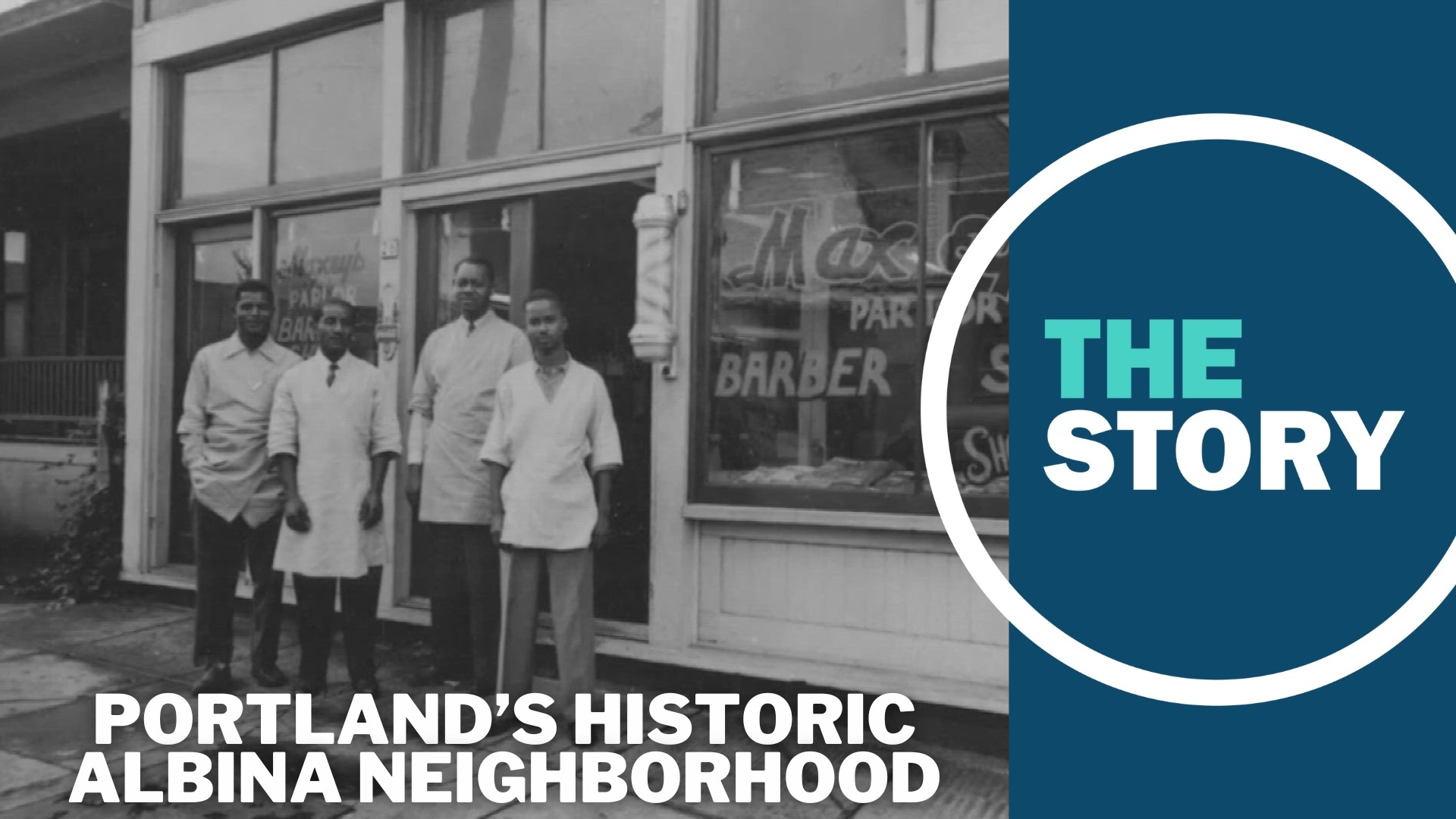PORTLAND, Ore. — Portland's Albina community was once a flourishing space that a majority of Black Portlanders thrived in. The neighborhood has been historically marginalized and overlooked, and for years there have been efforts to bring the community back to what it once was.
The Albina neighborhood is located in a portion of inner Northeast Portland now including Elliot, Boise, King, Humboldt, Overlook, Irvington and Piedmont neighborhoods.
Urban renewal and the use of eminent domain drove many Black families out of Portland's inner Northeast over the last century, but there are some signs of recovery — efforts to both get justice for the past and to build community where it was lost.
One group pushing towards those efforts is the Albina Vision Trust, a nonprofit that advocates for large-scale restorative development in the area, aiming to revitalize and reconnect the historically Black Albina community.
KGW had a chance to connect with the nonprofit's strategic communications lead, JT Flowers, to discuss the history of Albina and plans towards restoration. Flowers, a lifelong Portlander, grew up in inner Northeast Portland's Albina district. After leaving home, he went on to earn a degree from Yale University. He came back to help push towards advocacy and revitalization for the communal home that shaped him.
“Albina is not just a physical place, but it's also a spiritual and communal home for the Black community of the city of Portland,” said Flowers.
RELATED: Albina Vision Trust leaders outline what a restored Lower Albina in Portland would look like
Albina is rooted in a rich history, once populated by many Black-owned businesses, churches and even a popular jazz venue called The Cotton Club in North Portland. It hosted some very famous names, including Sammy Davis Junior, and locals such as Calvin Walker.
“This is a place that was once home to over 80% of the Black population of the city of Portland," said Flowers.

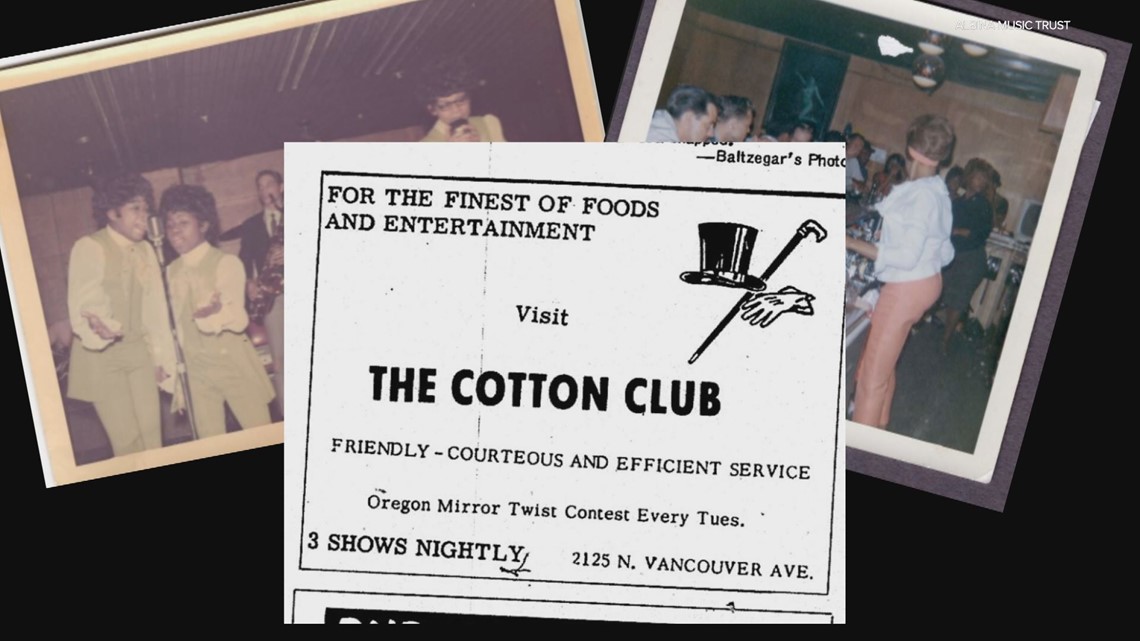
The community was overlooked and subjected decades of aggressions. Residents were displaced by construction projects such as Interstate 5, which was built over the lower area of the neighborhood, in addition to the Memorial Coliseum in the 60s.
“That remains the cultural hub of Blackness here in the city, despite decades of gentrification, of forced displacement that have pushed Black folks in particular further and further east — further and further out of our central city,” said Flowers.

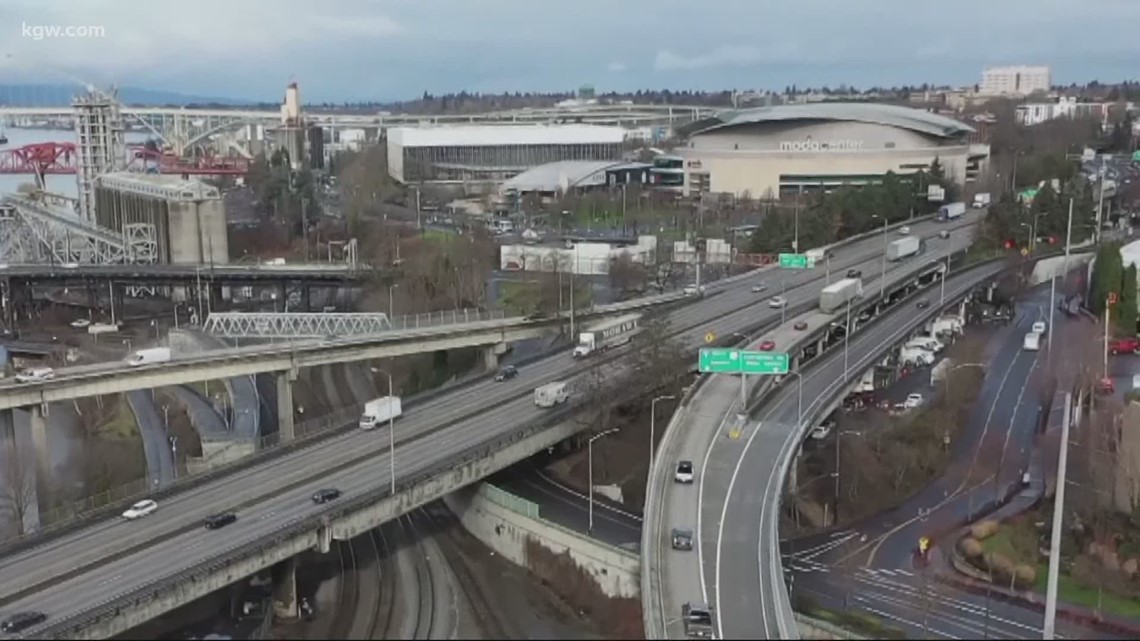
Black-owned homes and businesses were destroyed through eminent domain and urban renewal policies. In a clip from a trailer called "Restoring the Historic Lower Albina" from the Albina Vision Trust site that was featured in a recent KGW Straight Talk episode, Donna Maxey, an Albina resident, recalled the displacement her family experienced coming up in the area.
"When we had to move, we lost our home, we lost our church — my dad lost his business. He was a barber and we lost our community," said Maxey.

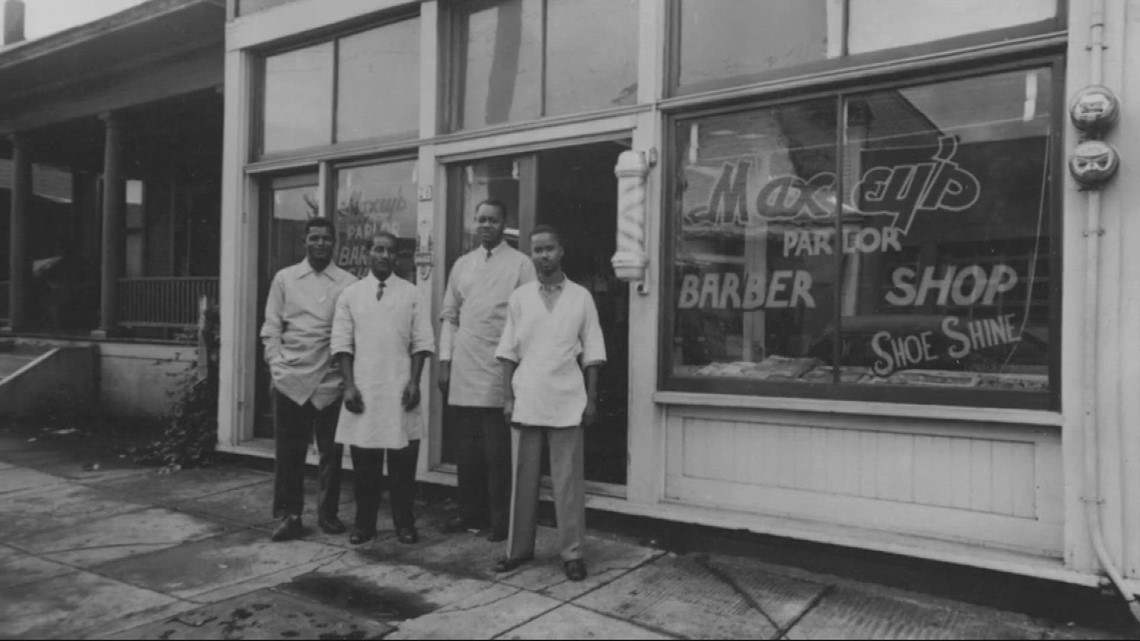
The most notable was the Legacy Emanuel expansion into Albina in 1970, and then the 1993 Albina community plan, which displaced hundreds of residents. The community was hit hard by redlining polices and development that drove out and financially hurt many people of color.
In 2022, descendants and surviving Black Portlanders who were forced out of their homes in the central Albina district in the 1960s and 70s filed a lawsuit against the City of Portland — as well as Legacy Emanuel. In December, a judge ruled that the lawsuit can proceed.
“If Black people can't find a home in the heart of our most progressive city, the economic and cultural hub of our state, where are we meant to find a home?” said Flowers.
Groups and organizations such as Albina Music Trust and the Albina Vision Trust have continuously worked to advocate, revitalize and reconnect the historically Black Albina community.
Last year, Albina Vision Trust celebrated the groundbreaking of Albina One. It's the first major project under the Albina Vision banner — a 94-unit affordable housing development in the Eliot neighborhood. The first families are expected to move in around the summer of 2025.
The group also gained approval from the Portland Public Schools board to purchase the district's administrative headquarters — that was another construction project that displaced hundreds of Black families in lower Albina. They aim to build 1,000 units of housing in its place.

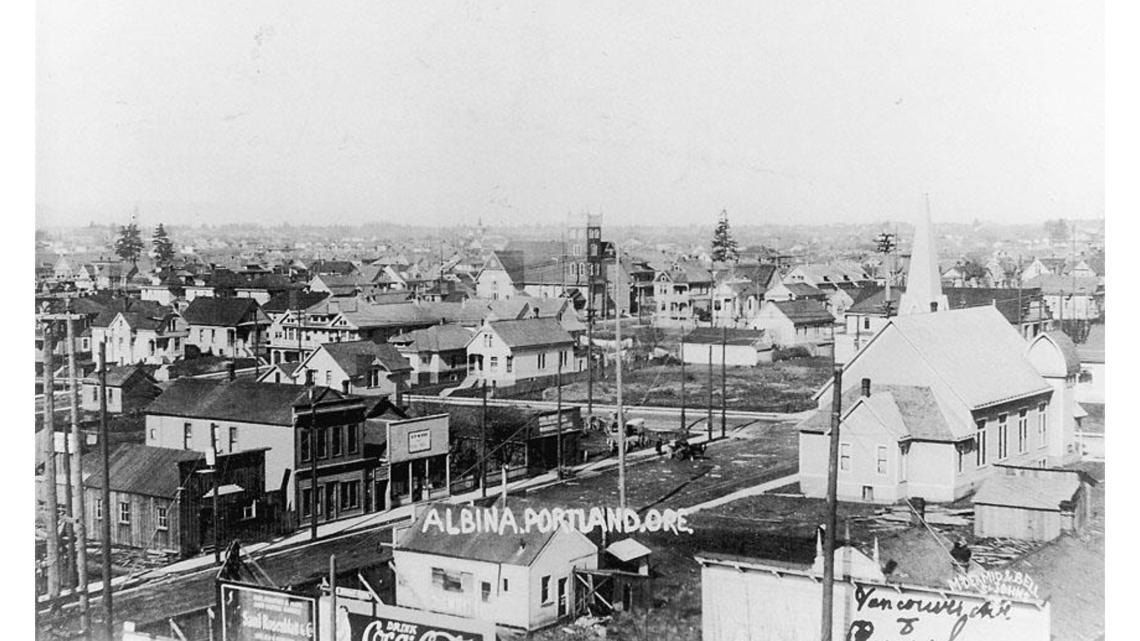
In April of last year, Nike co-founder Phil Knight and his wife, Penny, announced a $400 million investment for the area called the Rebuild Albina project. The idea is to support current and future generations of Black Portlanders through investments in education and culture.
Now, with developments such as the Albina One housing project and the lawsuit from Albina descendants proceeding — there's a resurgence of hope for the neighborhood's restoration and healing.
“We're gonna have to band together, we're gonna have to do that work ourselves,“ said Flowers. "The Portland of tomorrow is a Portland for everybody. The Albina of tomorrow is an Albina for everybody and the Oregon of tomorrow is an Oregon for everybody."

